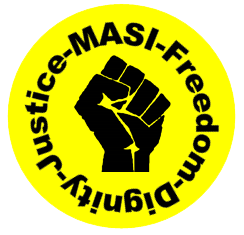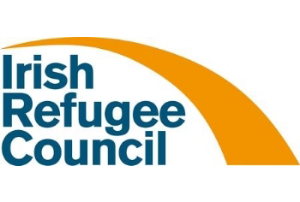
Ireland had a population of 5,123,536 at the 2022 census.

The International Organization for Migration (IOM) is a United Nations agency that provides services and advice concerning migration to governments and migrants, including internally displaced persons, refugees, and migrant workers.
The Irish Traveller Movement (ITM) is a national organisation for members of the Travelling community and Traveller organisations in Ireland.
Migrant Help is a United Kingdom-based national charity that has been supporting migrant since 1963.
Since 1945, immigration to the United Kingdom, controlled by British immigration law and to an extent by British nationality law, has been significant, in particular from the Republic of Ireland and from the former British Empire, especially India, Bangladesh, Pakistan, the Caribbean, South Africa, Nigeria, Ghana, Kenya, and Hong Kong. Since the accession of the UK to the European Communities in the 1970s and the creation of the EU in the early 1990s, immigrants relocated from member states of the European Union, exercising one of the European Union's Four Freedoms. In 2021, since Brexit came into effect, previous EU citizenship's right to newly move to and reside in the UK on a permanent basis does not apply anymore. A smaller number have come as asylum seekers seeking protection as refugees under the United Nations 1951 Refugee Convention.
Immigration detention is the policy of holding individuals suspected of visa violations, illegal entry or unauthorized arrival, as well as those subject to deportation and removal until a decision is made by immigration authorities to grant a visa and release them into the community, or to repatriate them to their country of departure. Mandatory detention refers to the practice of compulsorily detaining or imprisoning people seeking political asylum, or who are considered to be illegal immigrants or unauthorized arrivals into a country. Some countries have set a maximum period of detention, while others permit indefinite detention.
Immigration Control Platform (ICP) is a political group which seeks to restrict immigration to Ireland. The organisation's website describes it as an "Irish NGO" funded by subscriptions and donations. It was not registered in Ireland as a political party, but between 2002 and 2011 it ran non-party candidates in elections, with their election material displaying the Immigration Control Platform branding.
Robina Qureshi is a human rights campaigner. She is a critic of the asylum policies of the United Kingdom, and has campaigned to stop inhumane treatment and close detention centres for asylum seekers.
The Integration Centre is a Non Government Organisation (NGO) based in Ireland which is committed to the integration and inclusion of people from immigrant backgrounds in Irish society. The Centre was opened in July 2009 with the merger of two NGO’s; The Refugee Information Service and Integrating Ireland, The Immigrant Network.
Talk Up The Movement for Equality, Support, Anti-Racism, is a Cypriot Non-Governmental Organisation. The organisation has two main remits: campaigning against discrimination in all forms on the island, including racism and sex trafficking, including running the annual Action Week against Racism within the framework of the European Network Against Racism, and operating Support Centres which provide free legal and social services, guidance and advice to migrants, refugees and asylum seekers in Cyprus.

Direct provision is a system of asylum seeker accommodation used in the Republic of Ireland. The system has been criticised by human rights organisations as illegal, inhuman and degrading. The system, operated by the International Protection Accommodation Service (IPAS) of the Department of Children, Equality, Disability, Integration and Youth, provides international protection applicants with accommodation and a small allowance. International protection applicants in direct provision are usually entitled to state-funded medical care, and children have full mainstream access to the education system.
Launched in 2014, Justice Centre Hong Kong is an independent, non-profit human rights organisation that focuses on the protection of refugees and asylum seekers in Hong Kong. Hong Kong has long been a hub of migration and refuge due to wars in the region and Hong Kong’s historical role as a trading and transit entrepôt. There were estimated to be 14,000 refugees in the territory in 2017, and these refugees are in need of extensive legal assistance as the 0.8 substantiation rate is extremely low compared to rates of 25-62% per cent in other developed jurisdictions. Before early 2014 the organisation was known as the Hong Kong Refugee Advice Centre (HKRAC), which in 2007 had grown out of the Refugee Advice Unit from another local organisation working with refugees, Christian Action. And spun off by human rights lawyers Jennifer Stone and Raquel Amador, who were the first Directors. In 2012 Aleta Miller became Executive Director, helping HKRAC win the Clifford Chance Foundation Access to Justice Award in 2012, and relaunching the organisation as Justice Centre Hong Kong in 2014. From 2015 the Executive Director was Piya Muqit, who was previously head of policy and advocacy at UNICEF UK. In November 2020 Melanie McLaren was appointed Executive Director.

Black Pride Ireland is a Black gay pride advocacy group in Ireland founded in 2019 advocating for the rights of black LGBTQIA+ people on the island of Ireland.

The Movement of Asylum Seekers in Ireland (MASI) is an Irish advocacy group for those seeking international protection in Ireland, with the goals of ending direct provision and deportation.

The Irish Refugee Council (IRC) is a humanitarian, non-governmental organisation that protects the rights of people affected by displacement.
The Migrant Rights Centre Ireland (MRCI) is a voluntary organisation advocating for migrant rights in Ireland.

Doras is an Irish independent, non-governmental organisation advocating for the rights of migrants in Ireland based in Limerick.
Nasc is an Irish independent, non-governmental migrant rights centre in Ireland, based in Cork.
Lucky Khambule is a South African former asylum seeker and activist in Ireland, and co-founder of the Movement of Asylum Seekers in Ireland.

The Nationality and Borders Act 2022 is an Act of the Parliament of the United Kingdom proposed in July 2021 relating to immigration, asylum and the UK's modern slavery response. The Act also deals with British overseas territories citizenship and registration of stateless citizens. Amongst other elements, it proposes to introduce "designated places" or "offshore" asylum hubs for application of refugee and migrant asylum claims, potentially in another European country or an African country. Part 5 of the Act grants the Government new powers to limit who is considered a victim of modern slavery, with clauses limiting support in cases where survivors have not complied with State-set deadlines to disclose their abuse. Under Part 5, decision makers would also be asked to consider the survivors' criminal history before deeming them eligible for support.








